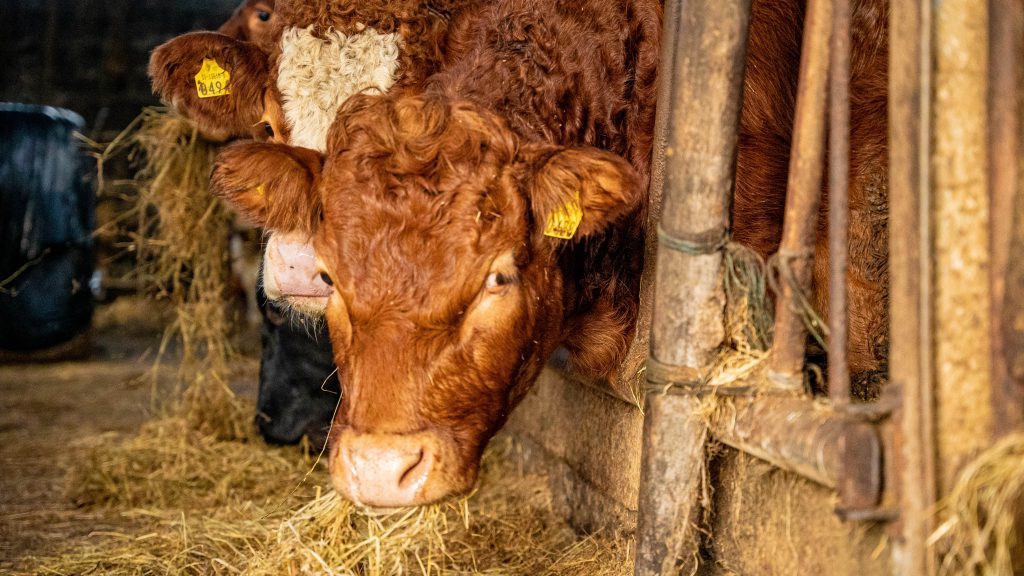Cattle Throughput on the Rise, but Beef Prices Fall in Northern Ireland
The Livestock and Meat Commission (LMC) has reported a significant increase in cattle throughput at Northern Ireland processing plants during the first half of 2024. However, this rise in supply has coincided with a decline in beef prices, leaving farmers facing a challenging market environment.
Cattle Throughput Increased Across Categories
According to LMC data, cattle throughput in Northern Ireland plants between January and June 2024 was 3.3% higher compared to the same period in 2023. This increase was driven by growth across various categories, with heifers showing the most notable increase at 4,506 head more processed. The LMC highlighted the increase in steer, heifer, and young bull slaughterings, indicating a broader trend of increased cattle supply.
Impact of Increased Supply on Beef Prices
The rise in cattle throughput has put downward pressure on beef prices, leading to a softening of the market. Agricultural market analyst Claire McAnearney observed that the increased supply of heifers has played a significant role in the price decline, noting that R3 heifer prices fell by 1.4p/kg to an average of 480.7p/kg during the first half of 2024. This trend reflects the basic principle of supply and demand, where increased supply typically leads to lower prices.
Cow Trade Weakening Significantly
The LMC highlighted a “major shift in trade” for cows, with a notable decline in average prices paid for O3 grading cows. McAnearney explained that this decline in cow prices has been “significant”, with prices dropping 48.2p/kg on average when comparing the first half of 2024 to the same period in 2023. This represents a substantial reduction in revenue for farmers, particularly given the higher carcase weight of cows.
Real-World Impact on Farmer Income
The LMC provided a clear illustration of the financial impact of this price decline. They calculated that for an O3 cow with a 280kg carcase weight, a producer would have received £1,085.28 during the first half of 2023, but only £950.32 in the same period of 2024 – a reduction of £134.96. This demonstrates the direct financial impact of the price drop on farmer income.
Factors Contributing to Price Decline
McAnearney identified several factors contributing to the weakened deadweight cattle trade in Northern Ireland during the first half of 2024. These factors include:
- Increased cattle throughput: The rise in cattle slaughterings has put downward pressure on prices due to increased supply.
- Depressed consumer demand: Poor weather conditions in the summer months have reportedly led to lower consumer demand for beef, further impacting prices.
Demand for Cattle Strengthens in Republic of Ireland
While Northern Ireland faces challenges in the beef market, there are signs of a more positive outlook in the Republic of Ireland. The Longford Leader reported that demand from meat factories for In-spec cattle has strengthened in recent days, with factories struggling to secure sufficient supply. IFA Livestock chair Declan Hanrahan emphasized that factories and agents are actively seeking cattle, offering premiums over standard quotes to secure deals.
Market Factors Driving Demand
Hanrahan attributed this increased demand to several factors, including:
- Summer trade: The traditional summer trade typically sees increased demand for beef.
- Olympic-related demand: The upcoming Olympics in Paris is expected to further boost demand for beef, creating additional market pressure.
Opportunities for Farmers in a Tight Market
The IFA Livestock chair urged farmers to capitalize on the current market conditions. With strong demand and tight supplies, he encouraged farmers to negotiate for higher prices and explore alternative sales channels like livestock marts, where competition from Northern Ireland buyers can drive up prices. Hanrahan also called on meat factories to stop using price gamesmanship and offer farmers fair prices given the strong market conditions.
A Balanced Outlook for the Future
The beef market in Northern Ireland is currently facing challenges, but there are signs of strength in other regions, like the Republic of Ireland. It remains to be seen how the market will evolve in the coming months, but the current situation highlights the importance of adapting to changing market dynamics and maximizing opportunities for farmers in a tight market environment.
A New Chapter for Princes Limited
In a separate development, International tinned meat producer Princes Limited announced the completion of its acquisition by Newlat Food S.p.A. This acquisition signifies a new chapter for Princes Limited, with the potential for strategic changes and market growth in the coming years. The impact of this acquisition on the wider meat industry remains to be seen but could have significant implications for the global meat market landscape.
Promoting Sustainability in the UK Food System
ABP UK, a major player in the UK meat industry, has taken steps to showcase the sustainability of British food by sponsoring the NFU Food and Farming Fellowship Scheme. This initiative aims to promote sustainable practices within the UK food system and highlight the environmental and social benefits of British agriculture. The move underscores the growing importance of sustainable practices in the food industry and the efforts of key players to address environmental concerns.
Kerry Taste & Nutrition Reports Strong Half-Year Results
Ingredients company Kerry Taste & Nutrition released its financial results for the first half of 2024, reporting strong performance. The company attributed its success to factors like growth in key markets and innovation in product development. These results highlight the ongoing growth and innovation within the food ingredients sector, which plays a vital role in the global food supply chain.
Looking Ahead
The meat industry faces a complex and dynamic landscape, with challenges and opportunities emerging across various segments. The current situation in Northern Ireland, marked by increased cattle throughput and declining beef prices, highlights the importance of adaptability and strategic decision-making for farmers and producers. Meanwhile, developments such as the Princes Limited acquisition and initiatives promoting sustainability highlight the evolving nature of the industry and the drive for growth and responsible practices. The coming months will be crucial for shaping the future of the meat industry and determining its trajectory in a changing world.

















